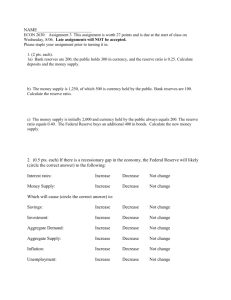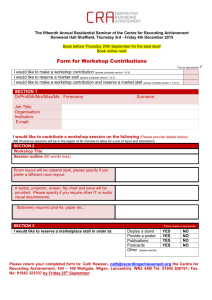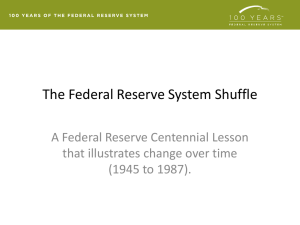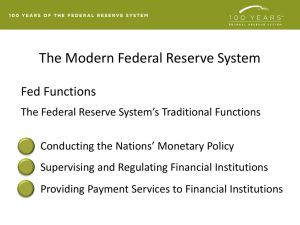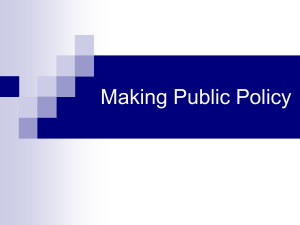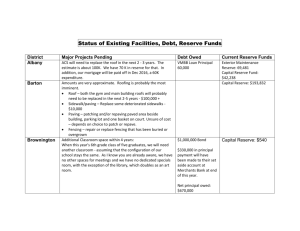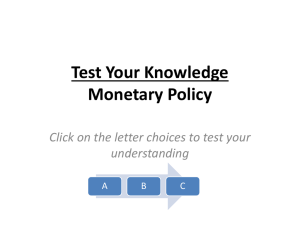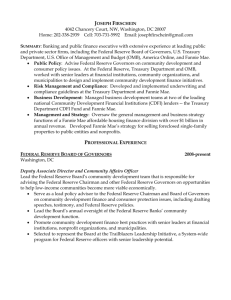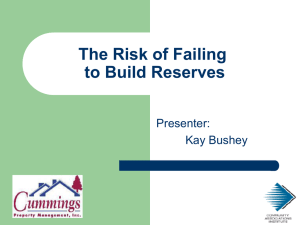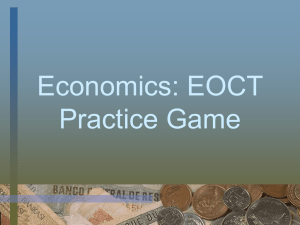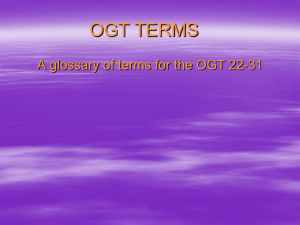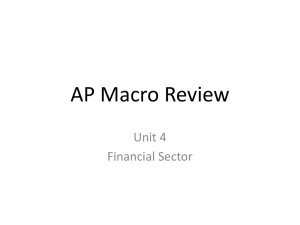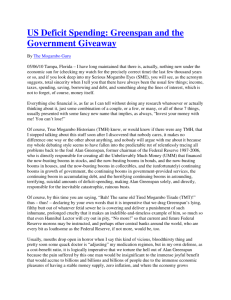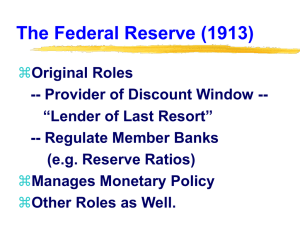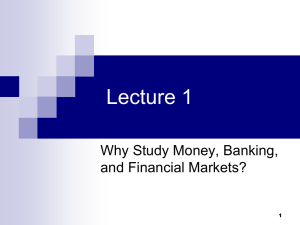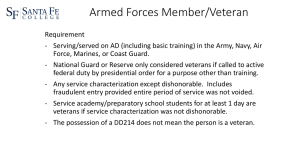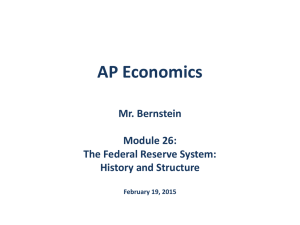20131107 DeLong on Yellen - Brad DeLong`s Grasping Reality
advertisement
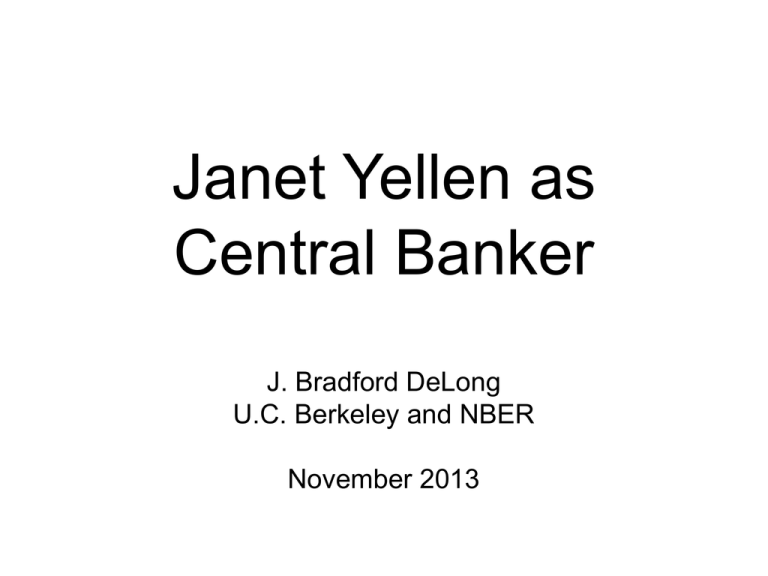
Janet Yellen as Central Banker J. Bradford DeLong U.C. Berkeley and NBER November 2013 Pre-Federal Reserve Career • B.A. Brown University (Providence, RI) 1967 • • • • • Ph.D. Yale University (New Haven, CT) 1971 Assistant Professor, Harvard University (Cambridge, MA) 1971-1977 Research Economist, Board of Governors of the Federal Reserve (Washington, DC) 1977-1978 Lecturer, London School of Economics (London, England) 1978-1980 Professor, U.C. Berkeley (CA) 1980-1994, 19992004 Government Career • Governor of the Federal Reserve 19941997 • Chair of the President’s Council of Economic Advisors 1997-1999 • President of the Federal Reserve Bank of San Francisco 2004-2010 • Vice Chair of the Board of Governors of the Federal Reserve 2010-Present In Government Before 2008 • How she got there and what she was supposed to do • What she did at the Federal Reserve • What she did at the Council of Economic Advisors • What she did at the pre-crisis Federal Reserve Bank of San Francisco • • What American Economists Thought Before 2008 The American macroeconomic consensus before the 1970s • • • Both left and right--Arthur Okun and Arthur Burns Recessions as falls below potential output Inflation a matter of “incomes policy” and politics • Inflation not very costly The American macroeconomic consensus after the 1970s • • • • Cycles as fluctuations around potential output Inflation as very costly Expectations of inflation as very fragile and hard to anchor Finance not very relevant--the Federal Reserve can build firewalls What She Thought Before 2008 • Focus on financial markets • • • • • Focus on labor markets: skill upgrading in a high-pressure economy Thus a supercharged belief in recessions as not just falls below but changers of the growth of potential Balanced by, even pre-Volcker, belief in the power of monetary policy to alter inflation expectations and inertia Believer in continuity • Hence dispute with Greenspan over 1995-1997 Worries in 2004-2007 about the forthcoming collapse of the housing bubble • Again, dispute with Greenspan • • • • What She Thinks since 2008 Hard to tell: a good deputy; close-mouthed Disciplined reporter of the current FOMC near-consensus Consensus builder That said, closer to being right than other senior monetary policymakers • • • • • Fear of bubble Grasped magnitude of financial crisis Understood likelihood of a jobless recovery Optimistic about the effects of QE policies at the ZLB • After May-June 2013, a point that seems proven Reality-based What Will Her Committee Be? • She is not going to override them; she will guide and educate them • Nineteen participants--twelve Reserve Bank presidents, seven Governors • Twelve members--seven Governors, President of the FRBNY, four other Reserve Bank presidents • • • • • • What Will Her Committee Be? II Herself William Dudley, President of the Federal Reserve Bank of New York Four other voting Reserve Bank Presidents Governors: • • • • Jeremy Stein Daniel Tarullo Sarah Bloom Raskin (headed for Treasury) Jerome Powell (term expires January 2014) That means, potentially, four Governor vacancies as of February 2014 Possible line-up: Yellen-Dudley vs. Stein, with Tarullo and four other Reserve Bank Presidents holding the balance The Congressional Context • The mechanics of the Senate • The policy temper of the Republican Right • The policy temper of the Republican Center • The partisan attachment of the Republican Center • The partisan attachment of the Democratic coalition The Economic Context • The unemployment rate and the employment-to-population ratio in the United States • The anchoring of inflation expectations in the United States • Interest rates and “unwinding” • The U.S. has hegemon • The emerging markets context • The broader North Atlantic context Conclusion • Market consensus is that Yellen will be one step to the left of Bernanke on both rate path and asset accumulation issues • • • • • Note that Bernanke-the-Chair was three steps to the right of where Bernanke-the-Professor had been: becoming Chair changes you Federal Reserve view: policies are already exraordinary, and need support from fiscal authorities (public spending) and regulatory authorities (foreclosure and housing finance path)--not further monetary policy adventures (i.e., changing the inflation target) A committee that will not be--after the departure of Bernanke, Raskin, and Powell--committed to Bernanke policies A committee that will have its new members, if any, chosen via an unforseeable process My view: most likely policy path unchanged

